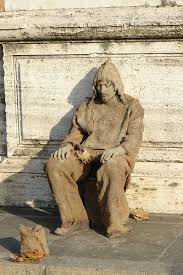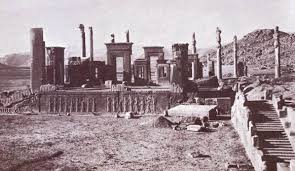Purim–The Providence of God
Sabbath Thoughts and Reflections–Episode 54
In Purim-The Providence of God:
Then Mordekai commanded to answer Hadassah: “Think not with yourself that you shall escape in the king’s house more than all the Yahudiym. For if you altogether hold your peace at this time, then shall there enlargement and deliverance arise to the Yahudiym from another place. But you and your father’s house shall be destroyed. And who knows whether you are come to the kingdom for such a time as this? (Ecter/Esther 4:13, 14-Cepher)
At this juncture of the Purim story, as we’ve been examining it over the course of the last couple months, we have entered a crisis period. The chapters and verses prior to chapter 4 prepped us for the real meat and potatoes of the story that is to come for the remainder of this megillah. In episode 52–we came across Mordekai discovering Haman’s extermination plot for the Jewish nation and Mordekai responding to this royal decree in the most profound manner depicted in Scripture: he wailed in the greatest of sorrow; rent his garment; donned sackcloth and laid in ashes in the midst of Shusan (aka Susa) the city (the capitol of the Medo-Persian Empire). Although chapter 4 of this megillah reveals that the whole of the Empire’s Jews mourned upon learning of the nation’s pending genocide, the focus of this chapter is Mordekia. The writer of this megillah takes us up close and personal with this man and we are exposed to Mordekai’s obvious sorrow. A sorrow so profound that the principle character of our story at this juncture resorted to the most compelling act of mourning described in Scripture: the renting of his garment, the donning of sackcloth and dwelling in ashes. Josephus’ record of this pivotal event is read as follows: “A nation that had been injurious to no man was to be destroyed as he cried throughout the city of Susa.” (Josephus 11.6.7)
So let’s put things into a proper perspective at this juncture of the story: We have a posted edict announcing the coming genocide or extermination of the Jewish nation within the coming year. In response to this edict, the nation mourns their pending death, some dressed in sackcloth and laying in ashes—the traditional method of mourning in Hebrew ancient culture. Despite the entirety of the Jewish nation mourning over this edict, the writer of this megillah focused primarily upon Mordecakai. For good reason obviously. For Mordekai held the greatest direct responsibility for Haman’s edict directed against the Jews as he, during Haman’s exaltation throughout the city of Shusan, refused to pay the stipulated homage for the man. We learned that the customary show of homage in the ancient near east towards potentates was to prostrate one’s self before them or somewhere within their presence, especially when that potentate would pass or transit by the subjects. For whatever reason, Mordekai refused to honor Haman as the rest of the city’s subjects freely did. Obviously, as we saw, word of Mordekai’s insubordination reached the ears of Haman, who in turn, actually witnessed Mordecai’s insubordination for himself. Haman’s rage over Mordekai’s lack of respect for him, led him to seek revenge, not just against Mordekai who in all fairness should be the sole focus of Haman’s ire, but hey, what the heck, why not take revenge against every Jew in Achoshverosh’s 127-provinces.
At this juncture of the Purim story, as we’ve been examining it over the course of the last couple months, we have entered a crisis period. The chapters and verses prior to chapter 4 prepped us for the real meat and potatoes of the story that is to come for the remainder of this megillah. In episode 52–we came across Mordekai discovering Haman’s extermination plot for the Jewish nation and Mordekai responding to this royal decree in the most profound manner depicted in Scripture: he wailed in the greatest of sorrow; rent his garment; donned sackcloth and laid in ashes in the midst of Shusan (aka Susa) the city (the capitol of the Medo-Persian Empire). Although chapter 4 of this megillah reveals that the whole of the Empire’s Jews mourned upon learning of the nation’s pending genocide, the focus of this chapter is Mordekia. The writer of this megillah takes us up close and personal with this man and we are exposed to Mordekai’s obvious sorrow. A sorrow so profound that the principle character of our story at this juncture resorted to the most compelling act of mourning described in Scripture: the renting of his garment, the donning of sackcloth and dwelling in ashes. Josephus’ record of this pivotal event is read as follows: “A nation that had been injurious to no man was to be destroyed as he cried throughout the city of Susa.” (Josephus 11.6.7)
Verse 4 reads: “So Hadassah’s maids and her chamberlains (in Hebrew it is written as Eunuch) came and told it her (speaking of Mordekai’s demeanor and mournful behavior). Then was the queen exceedingly grieved; and she sent raiment to clothe Mordekai and to take away his sackcloth from him—but he received it not.”
So word of Mordekai’s state reached the ears of Hadassah through members of her staff. I found it interesting how Hadassah’s love and loyalty for Mordekai never faded, despite Hadassah’s elevated-royal status. To me, it is a lesson and example for us in that we must never see ourselves as having arrived (that is, we are now Hebrew Roots and those of you who are not are not worth my time) and if by chance we take on such a position in life, that we do not neglect those whom Father has placed in our lives—unless, that is, the Ruach leads us to such an end. We must always be responsive and quick to act on behalf of our brothers and sisters, especially those in the Faith. I’ve noticed that we tend to drop family and friends when we come into Hebrew Roots—typically for obvious reasons of estrangement because of our stated Faith and adopted new way of life. But on the flip side of this equation, it would stand to reason that we are to be a light and the salt of the earth as referenced in Matthew 5:13-16 which reads: “Ye are the salt of the earth—but if the salt have lost his savour, wherewith shall it be salted? It is thenceforth good for nothing, but to be cast out and to be trodden under foot of men. Ye are the light of the world. A city that is set on a hill cannot be hid. Neither do men light a candle and put it under a bushel, but on a menorah; and it gives light unto all that are in the house. Let your light so shine before men that they may see your good works, and glorify your Father which is in heaven.” (Cepher)
Hathak is the intermediary between the queen and Mordekai, since Mordekai could not enter the palace proper and also given that the queen was likely not a public figure, but was more of a “kept” person behind the palace walls. It’s quite possible, however, that the queen liked it this way—being isolated from the public and the common folk. But it certainly gives rise to a reminder and warning of our own personal life situations: we must always avoid being too isolated and “out of touch” with the world around us. If we are called to be disciples of Messiah and lights and salt to the world, we can not accomplish our mission with our proverbial heads in the sand. We must know what is going on around us. And whatever it is that we need to do to stay in touch and in the know, we absolutely should strive to make it happen. One of the problems facing us as a people of faith, especially in this country today, is our isolationist mindset and behavior, that the government and general public sees as suspicious and quite frankly, even dangerous. Some news sources of late have reported that our very own federal government has labeled people of faith as potential terrorists and in some sectors of the federal government, plans have been made to address us as terrorists in the event the United States undergoes some form of national unrest or insurrection. So I believe we’ve got to get out there and not be so isolated. The Apostle Shaul wrote to the Roman Assembly: “Do not be conformed to this world, but be transformed by the renewal of your mind, that by testing you may discern what is the will of Yahuah, what is good and acceptable and perfect (Romans 12:2—ESV)” Then to the Philippian Assembly he wrote: “that you may be blameless and innocent children of Yahuah without blemish in the midst of a crooked and twisted generation, among whom you shine as lights in the world” (Philippians 2:15–ESV). But most of us, as it relates to being aware of that which is going on around us, shy away from knowledge of current events. But Shaul seems to say that we should dwell in this world—for which we have no other choice—but dwell in this world as transformed beings and disciples of Master Yahusha that are not of this world. How can we be of assistance to this world if we avoid understanding what is going on in the world? We become of no earthly good to anyone. Yet, through the leading and indwelling of Father’s precious Ruach HaKodesh, we can function just fine in this world and not compromise our Faith. The clue for success in this effort comes from Yahusha who instructed us to “…be wise as serpents and innocent as doves” (Matthew 10:16—ESV).
The story begins to become a bit more engaging as we see in the next few verses that the queen’s perceived influences may be somewhat overstated. It reads: “Again Hadassah spoke unto Hathak and gave him commandment unto Mordekai: All the king’s servants and the people of the king’s provinces do know that whosoever, whether man or woman shall come unto the king into the inner court, who is not called, there is one law of his to put him to death, except such to whom the king shall hold out the golden sceptre, that he may live: but I have not been called to come in unto the king these thirty days. And they told to Mordekai Hadassah’s words. Then Mordekai commanded to answer Hadassah: Think not with yourself that you shall escape in the king’s house more than all the Yahudiym. For if you altogether hold your peace at this time, then shall there enlargement and deliverance arise to the Yahudiym from another place, but you and your father’s house shall be destroyed (word of knowledge maybe???). And who knows whether you are come to the kingdom for such a time as this?” (verses 10-14)
So it would seem that Hadassah initially was not inclined to be a “malefactor” over something that in the bigger scheme of things, she likely felt didn’t or wouldn’t directly affect her.
The simple fact that Achoshverosh had not called for Hadassah is highly suggestive that our friend King Achoshverosh was preoccupied with his considerable harem of women. Don’t forget, it had not been too long before this incident that the kingdom held a great beauty contest that Hadassah was forced to participate in. So Achoshverosh was in no way hard-up for female companionship. This subtle, but glaring likelihood stands to remind us that Achoshverosh would always be a paganistic heathen who was consumed with sex, alcohol and his exceeding wealth, power and sense of self-greatness. We tend to ignore or dismiss these human frailties of Achoshverosh because he ultimately sides with Hadassah against Haman and ultimately saves the Jewish nation. But proper perspective and context must never be abandoned by the student of Scripture. For we realize that Father uses whom He so chooses or wills in order to accomplish His purpose. (Reference Romans 8:28; 9:14-18; Isaiah 55:11)
Nevertheless, there was a law in place that prevented Hadassah from entering in to the king’s presence uninvited and unannounced. Such a law is stifling and strict and in keeping with the inflexibility of Persian edicts and protocols. (Reference Jameson Fausett and Brown Commentary) Consequently, this law seems to apply to the queen, which somewhat assaults our western sensibilities, as our concept of marriage and the relationship between the man and woman of that marriage union would naturally supersede such a hindering law. Could you imagine the fallout in the White House if Michelle Obama was unconditionally and altogether restricted from seeing or addressing her husband the president for any length of time? Yet Hadassah was suffering from the severity of this law, especially as it would pertain to this most dire situation. (Reference Jameson Fausett and Brown Commentary) However, pushing aside for discussion sake the conspiratorial theory that Haman was behind this estrangement, we can safely surmise that the primary cause of this estrangement or alienation was a combination of alcoholism, sexual addition and political pandering and manipulation (to a natural and reasonable degree—not insidious).
In these two-verses, we see Mordekai scold Hadassah; that her lofty position of convenience and security was not entirely as it would seem to her at the moment. The fact that she had been distant from Achoshverosh for a month; the fact that former Queen Vashti was so easily disposed of by the king just a short time ago—makes it clear that everyone is expendable in life—that no one is indispensable, including she—Hadassah. Despite her being an exalted queen of the Persian Empire, over 127-provinces, she remained a Jew, vulnerable to the enemy—vulnerable to hasatan, who sought to exterminate the Jew and sever the bloodline leading to the coming Messiah.
Despite Yahuah’s name or any reference to Him at all being in this megillah, it is crystal clear that Father’s hands are all over this thing. Turns out Hadassah was in fact placed into the kingdom as queen to be a vessel for Yah to deliver His people from destruction and to keep intact the blood line that would ultimately lead to the birth of our Master, Yahushua Messiah.
Matthew Henry, a well know bible scholar and commentator, wrote the following: “Because the Lord loved His people, therefore He made Hadassah queen. There is a wise counsel and design in all the providences of God, which is unknown to us till it is accomplished, but it will prove, in the issue that they are all intended for, and centered in, the body–my word in place of church.”
What is the take away from this portion of the Purim story? The take away is that we are all placed in various life situations for some divine purpose. It is our job to realize this—to be cognizant of this—to be on-call and ready in a heartbeat to respond when called–and in the interim we must figure out what our purpose and our responsibilities are in response to that life situation that exists in association to our divinely appointed positions. We must never, however, get too comfortable in our lives and seek to shirk our divinely appointed duties and responsibilities; that our spiritual eyes are clear and open and are capable of seeing and recognizing each and every one of those divinely appointed opportunities whenever they present themselves.
Music by DanOMusic
Faithfully Submitted by Rod Thomas
A Ministry of Qumran Family Church–Encouraging You In Righteous Living While Contending for the Faith Once Delivered to the First Century Saints by Y’shua Messiah. Shalom. Shavu’atov
The Name of our Creator:
Yahovah, Yahuah, Yahweh
The Name of our Saviour and Son of the Most High
Yahshua, Yeshua, Yahoshua, Yahusha





